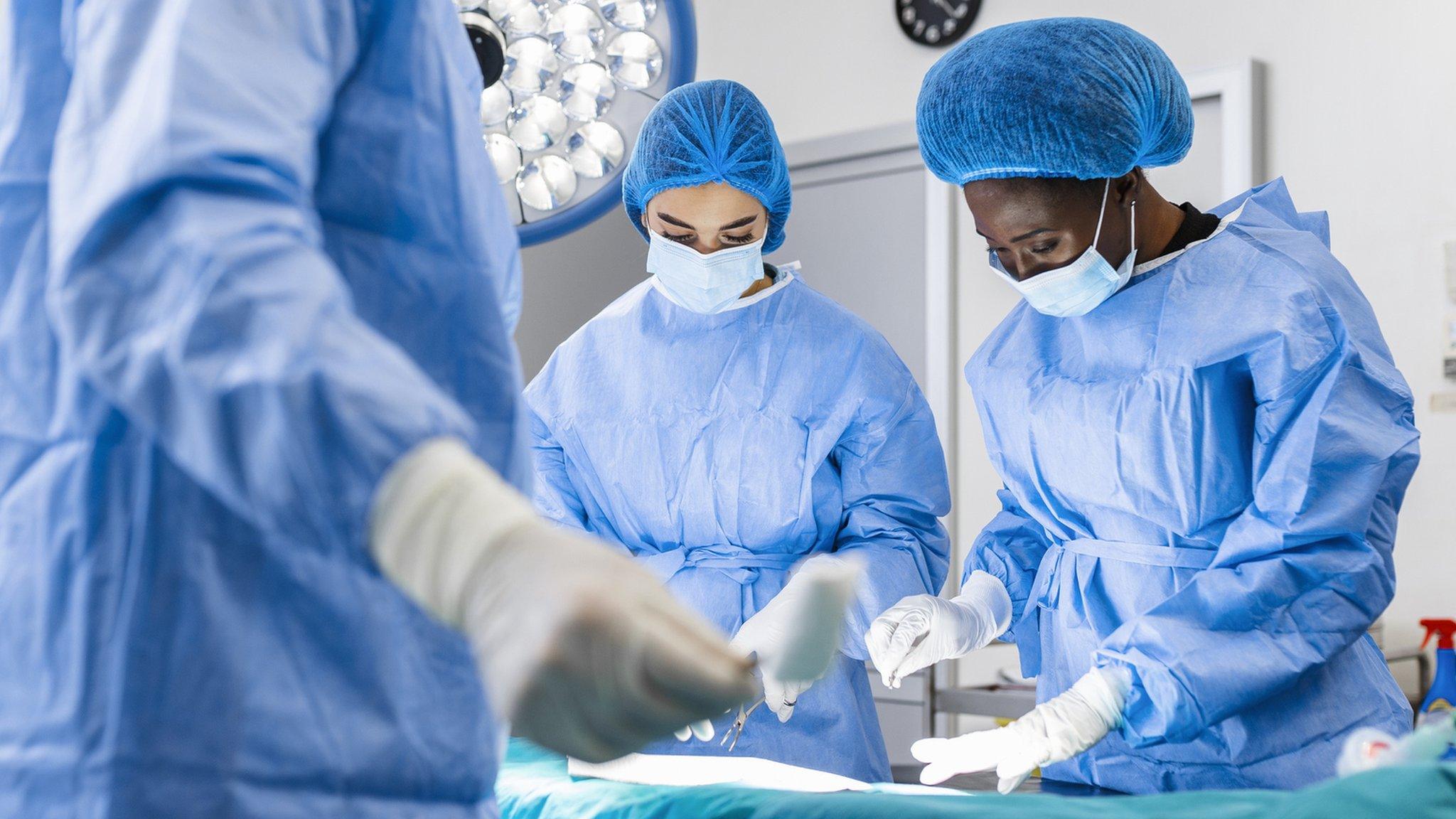Milton Keynes Hospital tackles backlog with extra clinics and operations
- Published
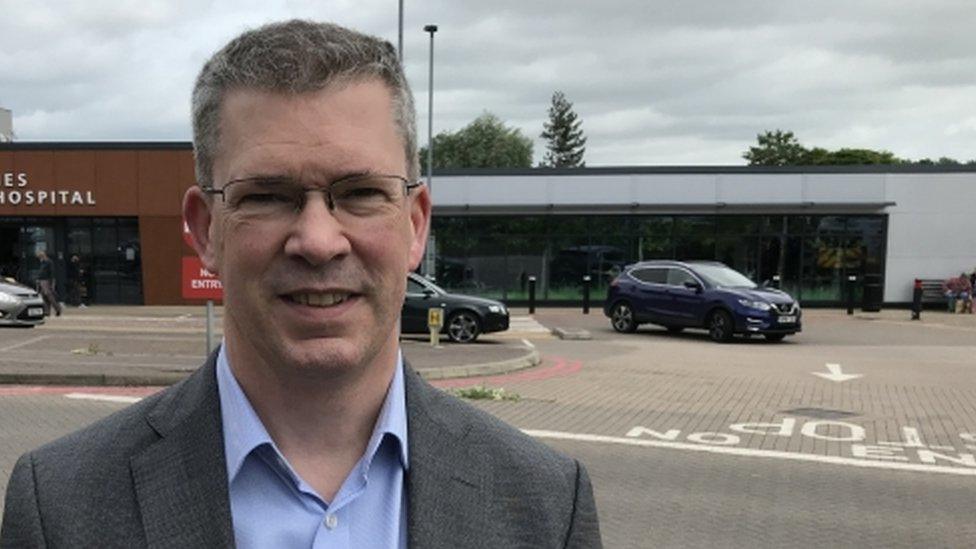
Hospital chief executive Joe Harrison said waiting lists as a result of the pandemic are a "challenging mountain that we have to climb"
Staff at a hospital where about 32,000 patients have been waiting to start treatment are working longer hours to try to reduce the backlog.
Waiting lists at Milton Keynes University Hospital, external have doubled since 2019 because of the Covid-19 pandemic.
About 900 patients have been waiting to be seen for more than a year.
Chief executive Joe Harrison said despite "significant reductions" in the past 12 months, it would take "a couple of years" to reduce all the backlogs.
Stoma care advanced practitioner Karen Pollington said the hospital had had to be "very smart about how we work", including introducing extra clinics and operating sessions.
Mr Harrison said: "Covid was one mountain we climbed as the NHS, the waiting lists are a second equally as challenging mountain that we have to climb."
Elective surgery resumed in early March and patients have returned to ward 24, the recovery ward.
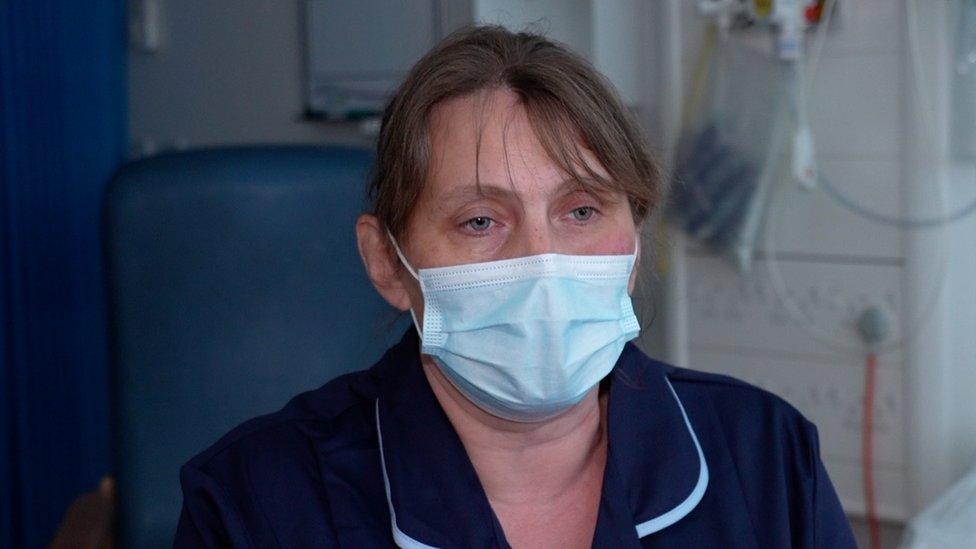
Ward manager Vicky Doig waited two years for a gynaecological procedure as a result of the pandemic
Its ward manager Vicky Doig said: "We are getting extra lists [for surgery], we're doing extra programmes, we've got our enhanced recovery programme - and we've got the new robotic operations."
While some patients "are a bit fed-up" due to the waits, most were "just relieved they are getting their surgery", she said.
Ms Doig needed a gynaecological procedure "at the height of the pandemic" and experienced a two-year wait.
"It had a big impact on my personal life - I was having to have my children and my husband do a lot of stuff at home for me and I'm a very independent person and it drove me absolutely mad," she said.
But she understood why it took so long.
"The clinics were cancelled because all the registers were called in to clinical work on the [Covid] wards."
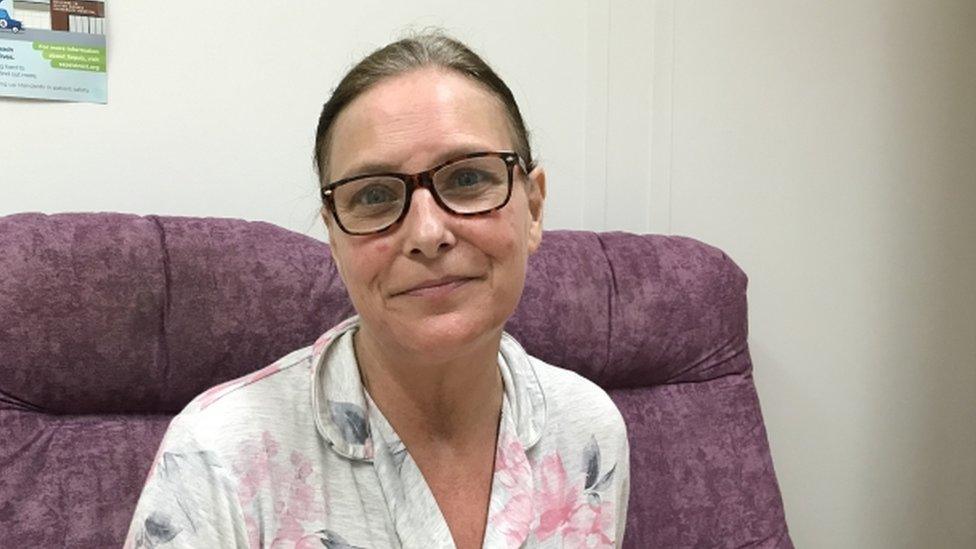
Kidney patient Tara Symmons said Milton Keynes Hospital, the endoscopy unit and the nurses had been "brilliant"
Tara Symmons was among the first patients to receive robot-assisted surgery at the hospital.
She was grateful to be treated for a tumour on her kidney within two months of visiting her GP.
"The quicker the op is done the better because you're not sitting there freaking out," she said.
But she added: "I don't think in the current situation it's fair to blame hospitals, they've done as much as they possibly can to help everyone."
Once she was referred to the hospital, the process was quick, and within a day of surgery she said was "hopefully going home today to get on with life, the next chapter."
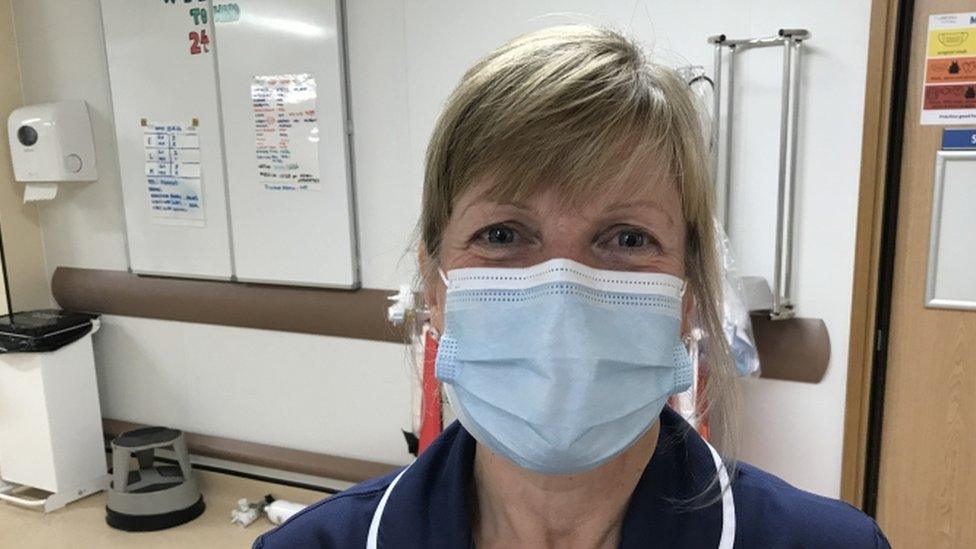
Karen Pollington, in the stoma team, said the hospital had been tackling the surgical backlog
As part of the stoma team, Ms Pollington supports patients after bowel surgery and in the community
Nearly 70 patients had already been operated on so far this year, compared to 100 in 2021, she said.
"The surgeons are bringing a lot more patients in, so our workload has increased hugely.
"It means working longer hours and making sure our patients still have the same level of support."
Mr Harrison said: "Our view is that over the next 12 to 24 months we'll get back to sensible waiting times for our populations."
"We are talking up to a couple of years across every specialism - we already have some specialisms where waiting times have become much, much more acceptable."

Find BBC News: East of England on Facebook, external, Instagram, external and Twitter, external. If you have a story suggestion email eastofenglandnews@bbc.co.uk, external
Related topics
- Published21 May 2022
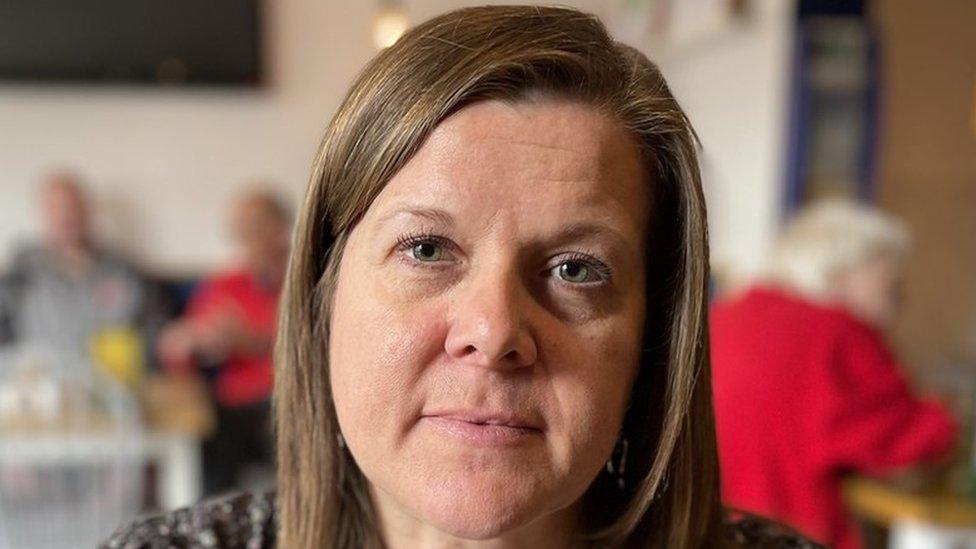
- Published10 May 2022

- Published2 April 2022
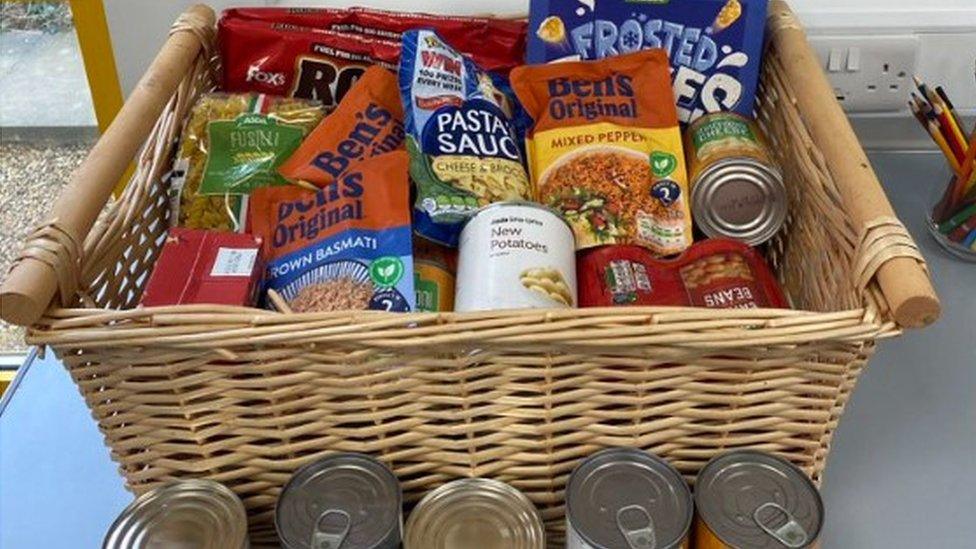
- Published8 February 2022
